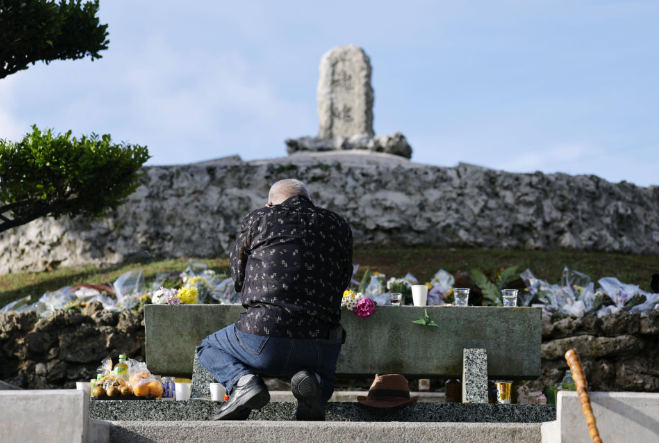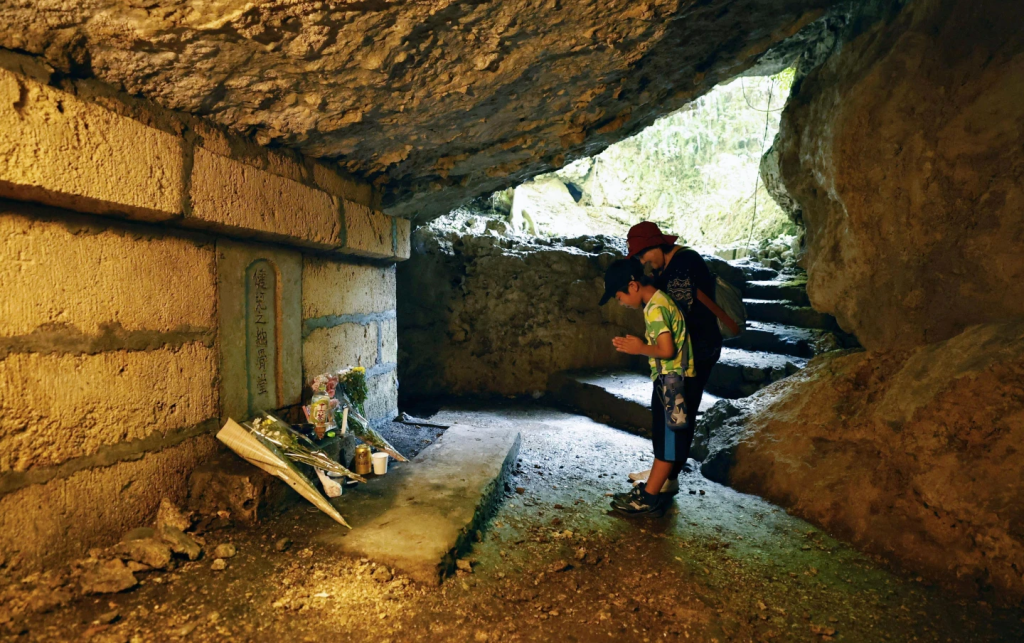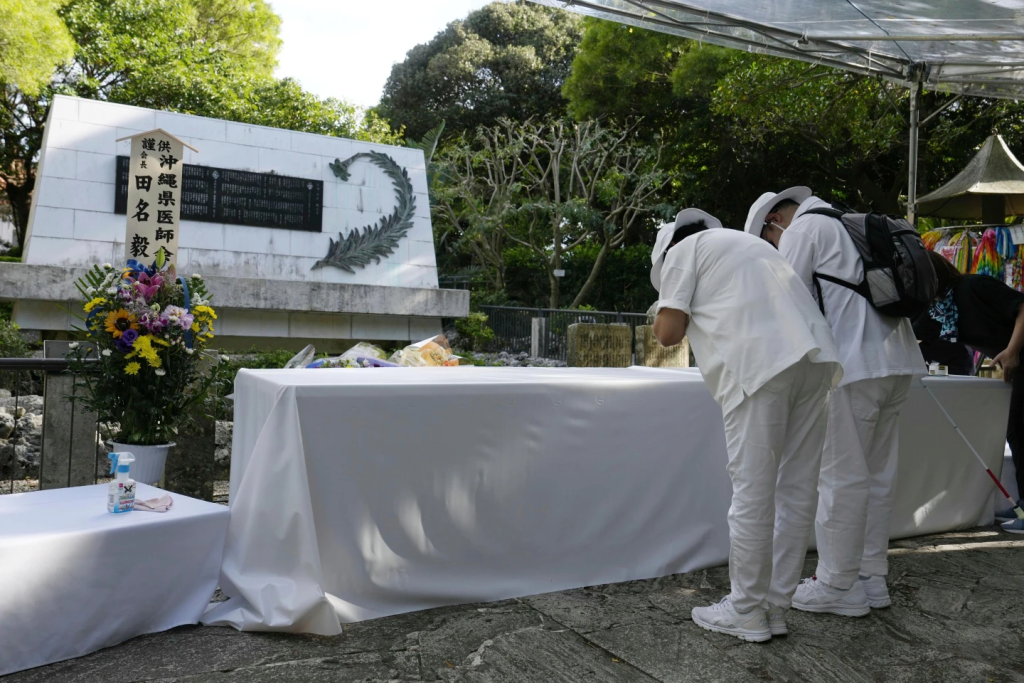
TOKYO – Okinawa on Monday vowed to preserve and pass on the lessons of history in a ceremony marking the 80th anniversary of the end of a fierce World War II ground battle between Japan and the United States that took over 200,000 military and civilian lives.
Prime Minister Shigeru Ishiba and Okinawa Gov. Denny Tamaki attended a service at the Peace Memorial Park in Itoman, where the final stage of the battle was fought. Another 342 names were added to the list of war dead inscribed on monuments, bringing the total to 242,567 people.
At the event, Tamaki said the reality of the battle and its lessons “have been preserved from the stories of war survivors” and form the “roots of the people of Okinawa and our enduring desire for peace.”
He told the ceremony it is “our mission as those living in the present to preserve and pass on” the significance of the battle to future generations “as the spirit of Okinawa.”
Speaking amid heightened concerns over conflicts worldwide, Ishiba said “it is the nation’s vital responsibility to squarely face the folly and tragedy of war, and to do its utmost for a peaceful and prosperous Okinawa.”
The Battle of Okinawa from March through June 1945 in the Japanese southern island prefecture took a heavy toll on the local population, with one in four residents killed.
After Japan’s defeat, Okinawa was under U.S. administration until 1972 and continues to host the bulk of U.S. forces in Japan. Referring to the long-running local discontent, Tamaki said the prefecture “continues to shoulder an outsized burden for U.S. bases.”

Anti-base sentiment runs deep due to noise, pollution and crimes committed by American service members, with a series of alleged sexual assault cases revealed recently fueling anger among local residents.
Ishiba pledged in his speech at the ceremony to “visibly reduce the burden of U.S. bases on Okinawa,” calling it his “deep-held resolve.”
Other attendees included Shigemitsu Tanaka, a representative of the Japan Confederation of A- and H-Bomb Sufferers Organizations, which won the Nobel Peace Prize in 2024, and Izumi Nakamitsu, U.N. undersecretary general and high representative for disarmament affairs.
Before the ceremony, those who experienced the war and their relatives paid their respects at the Itoman park’s Cornerstone of Peace.
Sitting in a wheelchair, Asako Idogawa, 89, repeatedly traced the inscription of the name of her older brother, who was burned by a U.S. flamethrower. “Perhaps I won’t be able to come next year,” she said, adding that “war is cruel.”
Japan has been strengthening its defense capabilities in the prefecture in recent years as tensions grow with China over Taiwan and the nearby Senkaku Islands, a group of uninhabited islets controlled by Tokyo and claimed by Beijing, which calls them Diaoyu.
The move has raised concern among Okinawans that their islands could again become the front line of conflict.

BY: The Times Union







